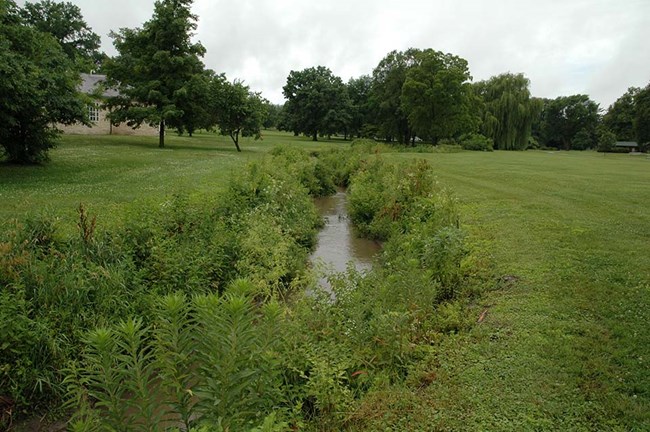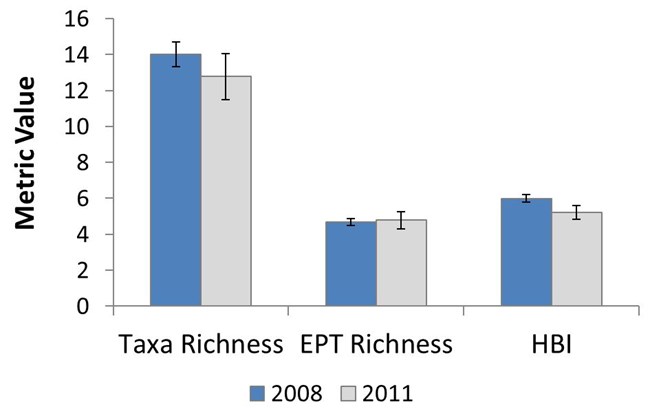Last updated: March 16, 2018
Article
Aquatic Invertebrate Community Monitoring at Herbert Hoover National Historic Site

NPS
Scientists use established methods to track aquatic invertebrates and assess stream water quality conditions. Aquatic invertebrates can include insect larvae, worms, crayfish, snails, and other animals without backbones. Many invertebrates live in a stream for several months, which exposes them to changing water quality conditions over time. When scientists monitor aquatic invertebrates, they can find out what species are present and their tolerance level to pollution and disturbances. Some species can live in poor water quality conditions, while others need cleaner conditions. Aquatic invertebrate communities can serve as the "canary in the coal mine" for water quality of a stream.

NPS
Since 2008, there has been no change in the invertebrate community, water quality, or habitat in Hoover Creek. Scientists found many species that are tolerant to poor water quality conditions. This, along with other water quality measurements shows that the stream is disturbed.
Threats to stream quality occur in the watershed. For instance, farming and urban development occur near the park. This presents managers with a problem, what should they do? Maintaining and widening the areas near streams can help protect the aquatic life and reduce erosion. This would decrease chemical runoff and sediment from entering the stream. Several drain pipes emptying directly into Hoover Creek should be closed or re-routed. These areas could be restored with native plants, which would help with erosion. Promoting conservation in the watershed also helps.
Learn more about the Heartland Inventory & Monitoring Network.
Data in this report were collected and analyzed using methods based on established, peer-reviewed protocols and were analyzed and interpreted within the guidelines of the protocols.
